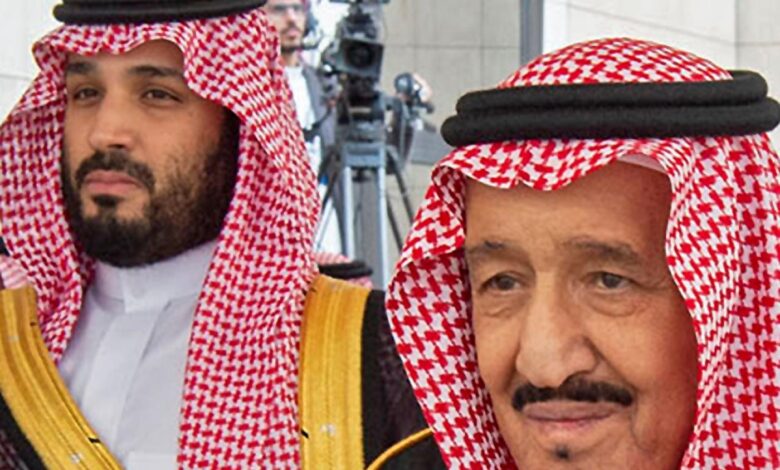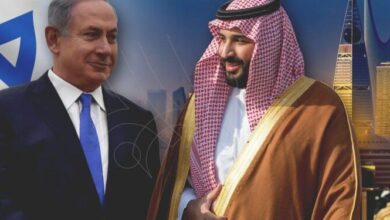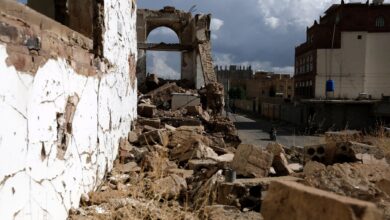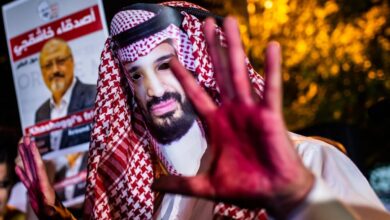A vision for a democratic Saudi Arabia free from the house of Saud

Two terms have always been taboo in Saudi Arabia: democracy and political party.
Both are dubbed as western imported blasphemy, leading to discord against the so-called Saudi Islamic tradition. Uttering these words could lead to detention and even charges of sedition, whose punishment is sometimes execution.
But on 23 September, when Saudi Arabia celebrated its National Day, six exiled Saudi activists and academics – myself included – launched the Saudi National Assembly (NAAS), not only to undermine that taboo but also to insist that the only future for a stable, secure and internationally respected Saudi Arabia is to wholeheartedly adopt democracy as a political system to replace the current absolute monarchy.
The real democracy
NAAS issued its foundation statement, a document that has been discussed by a group of exiled activists in several western countries including the US, Canada, and Britain, where they have sought asylum. This political party calls for a real democracy with an elected national assembly, separation of powers, independent judiciary, respect for human rights, and the rule of law.
This political party calls for a real democracy with an elected national assembly, separation of powers, independent judiciary, respect for human rights, and the rule of law
The party believes freedom of expression and the right to form independent civil society are vital, particularly in the Saudi context, where the regime unlawfully detains professionals, intellectuals, activists and young people simply for expressing critical opinions on social media.
An economic programme that considers the country’s natural resources as a treasure to be handled with transparency and equality is vital. Wealth distribution can only be preserved if it benefits all and is subject to the national interest. Welfare services and benefits should be distributed according to need, rather than as a result of favouritism and nepotism, as currently practised.
Transparency would allow global investment to reach Saudi Arabia without being channelled through corrupt networks overseen by a close coterie of regime beneficiaries.
The social charter of NAAS insists that all citizens, in addition to residents and immigrants, are equal under the rule of law. Sects, regions, tribes and other ideological differences are not the basis of entitlement as this is based on the right of citizens.
Equal citizenry
The party seeks to challenge identities nourished by the regime, such as tribalism and sectarianism, in order to create a modern, equal and engaged citizenry. As part of this democratic project, the participation of women goes beyond cosmetic reforms, such as permitting women to drive cars or appointing women to token government jobs as a way of impressing outside audiences.
READ: Evidence of recent Saudi war crime in Yemen surfaces
Given Saudi Arabia’s recent aggressive foreign policy in the region, the party promotes diplomacy as the means to secure Saudi national interests. Military engagements, aggression, and conspiracies against other countries are to be avoided. But defending the security and integrity of Saudi territory from outside aggression remains paramount.
The founding members are working on opening the political party to a wide circle of members and supporters who believe in its manifesto and are committed to accept its ideals. Together they will work both domestically and globally to raise consciousness and enlist support. The party adopts peaceful means such as raising consciousness, engagement with the media, lobbying and civil protest when this does not endanger compatriots at home.
Its objective is not to destabilise Saudi Arabia, a country that is not only important for its resources and potential but also for all its citizens, and the Arab and Muslim world. NAAS mitigates against the disintegration of Saudi Arabia at a critical time when it is facing unprecedented challenges of dwindling oil revenues, increasing debts and excessive abuse of human rights and repression.
Benevolent no more
After the murder of Saudi journalist Jamal Khashoggi on 2 October 2018, Saudi Arabia’s reputation reached an unprecedented low even among its Western allies and partners.
It is time that Saudis regain the rightful meaning of democracy and political parties that the regime has always associated with dissent and chaos
Khashoggi’s assassination shattered the myth about the benevolent monarchy and redefined the image of the country in the imagination of the international community as a rogue state, willing to defy international norms and values. If not urgently addressed, all these conditions make a descent into violence and disintegration likely without real political change.
The new party addresses the urgent needs of the country’s citizens from civil rights to employment, and should be welcomed by the international community, including state actors and non-governmental organisations, as it promises a transition towards good governance and accountability.
The party offers a way forward for Saudi Arabia amid a looming vacuum should the regime experience serious upheaval, power struggles within the royal family, and complete implosion from within after the death of King Salman. His successor, Crown Prince Mohammed bin Salman, has not only alienated members of his own family, but also the old elite that had historically supported it, such as the financial elite, tribal groups, religious scholars and intellectuals.
The destiny of a people
The regime has lost its legitimacy and finds itself increasingly resorting to violence as a means to silence critical voices inside and outside royal family circles. Direct aggression, violation of privacy, surveillance and threats have become the norm in the absence of accountability and the rule of law.
It is time that Saudis regain the rightful meaning of democracy and political parties that the regime has always associated with dissent and chaos. Its official religious scholars instilled in the mind of a whole generation that politics is better left in the hands of royalty.
The complete marginalisation of citizens cannot be sustained when Saudis have excelled in education and initiative.
Above all, they demonstrated that they can have a political imagination to coherently articulate a future in which the citizens insert themselves into the political narrative of their own country and make national policy.
The number of political prisoners in Saudi prisons attests to an advanced consciousness that refuses to accept that the destiny of Saudis can only be shaped by royal prerogatives.
Source: Middle East Eye





